Top Picks for the 2024 Best Instant Gas Hot Water System: A Buyer's Guide
CLICK HERE TO CHECK OUR 2025 AWARD WINNERS
Selecting the 2024 best instant gas hot water system can be daunting. Our guide cuts through the noise and zeros in on systems that excel in efficiency and innovation. Discover why our top picks, such as Rinnai and Rheem, have earned their reputation this year, without deep-diving into complex specifics.
Key Takeaways
-
The Rinnai B-Series, Rheem Metro Series, and Rinnai Infinity Series are 2024’s top-rated continuous flow gas hot water systems, favored for energy efficiency, reliability, and technological innovations.
-
Professional guidance from plumbers is crucial when choosing an instant gas hot water system to ensure compatibility with household needs, proper installation, brand reliability, and optimal performance.
-
When maintaining any gas hot water system, routine checks & cleaning is critical to preserve efficiency and longevity; complex issues or significant maintenance should be handled by professional plumbers.
2024's Premier Instant Gas Hot Water Systems
As we venture into 2024, it’s clear that the spotlight is on continuous flow systems, designed to provide hot water on demand without the limitations of traditional storage tanks. As such, the champions of this year’s top instant gas hot water systems are those that combine innovative design with the latest in heating technology. The stage is set with brands such as:
-
Kelvinator
-
Rinnai Enviro
Striving to meet diverse household requirements and preferences.
Champion of Continuous Flow: Rinnai B-Series Review
The Rinnai B-Series claims the top spot for 2024, distinguishing itself through its:
-
Energy efficiency
-
Affordability
-
Low emission burners
-
Puretemp™ temperature control technology
-
Superior performance compared to other gas hot water systems
The average lifespan of a Rinnai B-Series tankless hot water heater system ranges from 8 to 12 years, showcasing its durability and long-term reliability.
Users can expect the following features from this product:
-
Instantaneous hot water delivery
-
Compact design
-
Compatibility with LPG and Natural Gas
-
Superior heat exchange
-
High energy efficiency
The only drawback is the absence of an external status screen, which some users may find inconvenient for monitoring the system’s status.
Reliable Runner-Up: Rheem Metro Series Explored
The Rheem Metro Series marks its position at second place. With a 50°C temperature-limited model and an impressive 6-star energy efficiency rating, it offers an excellent alternative to electric water heaters. Although the Rheem Metro Series is noted for its efficiency and features, it may not be as reliable as the Rinnai B-Series. Reviews have shown mixed responses in terms of reliability, with some noting less efficiency and a higher upfront cost.
Nevertheless, the lifespan of the Rheem Metro Series ranges from 5 to 15 years, influenced by the quality of water and the maintenance it receives over time.
Third Place Titan: Rinnai Infinity Series Insights
Recognized for its high-quality stainless steel heat exchangers and long-lasting performance, the Rinnai Infinity Series secures the third place. The Infinity Series achieves elevated efficiencies and reduced operating expenses, effectively extracting more heat from the gas. Backed by a standard warranty of 12 years for heat exchangers and 3 years for parts and labor, this system has an enduring performance, so much so that the warranty for the heat exchanger can be extended up to 25 years.
The Rinnai Infinity Series also demonstrates remarkable energy efficiency with a 6-star energy rating. However, the consumer feedback for the Rinnai Infinity Series is varied, with users appreciating the system’s user-friendly features and continuous hot water supply, while others have encountered issues.
Expert Recommendations for Natural Gas Hot Water Systems
When it comes to choosing a hot water system, consulting a plumber is crucial to ensure the reliability of the system, minimize potential maintenance issues, and receive guidance through complex issues to maintain system efficiency and longevity. A plumber’s advice is also beneficial in guiding your brand selection, as choosing a reputable brand can positively influence the performance and reliability of your system by ensuring a consistent supply of hot water and minimizing chances of unexpected breakdowns.
Consult a Plumber for Personalized Advice
Although price or brand might sway your decision, enlisting the advice of a plumber can offer invaluable insights into the strengths and weaknesses of various systems. Plumbers consider factors such as:
-
the size and needs of your home
-
number of householders
-
type of gas used
-
main power source
-
energy efficiency
-
capacity
-
brand reputation
-
installation requirements
-
maintenance needs
Their expert advice can significantly influence your decision-making process by offering insights into the benefits of gas hot water systems, assessing the appropriate system capacity based on your specific requirements, and ensuring the proper installation for optimal performance and safety.
The Significance of Brand Selection
Your hot water system’s performance significantly relies on your choice of brand. Opting for a reputable brand ensures that you benefit from:
-
the latest technological advancements
-
innovations in design
-
favorable customer reviews
-
a comprehensive product range
-
a solid warranty
This is especially significant to note given that some well-known brands like Bosch have pulled out their ranges due to quality issues.
The brands recognized for their reliability in instant gas hot water systems for 2024 include Dux, Rinnai , Rheem, and Bosch.
Features to Look For in Gas Hot Water Systems
Selecting the appropriate gas hot water system isn’t merely about opting for the most popular brand or the one with the most striking features. It’s about finding a system that meets your specific needs and circumstances. Key features to consider when choosing a gas hot water system include:
-
Energy efficiency
-
Flow rates
-
Heat exchanger quality
-
System longevity
Energy Efficiency and Flow Rates
The economic value and user experience of gas hot water systems hinge significantly on energy efficiency and suitable flow rates. An energy efficient water heater, particularly those using gas hot water, consumes less power, leading to more economical operation and reduced running costs.
Flow rates are essential for the efficient operation of gas hot water systems, as they ensure effective delivery of hot water. The typical flow rate for gas hot water systemsin 2024 is approximately 22 to 24 liters per minute, making it suitable for a house with two bathrooms.
Heat Exchanger Quality and System Longevity
A high-quality heat exchanger for a gas hot water system has the following characteristics:
-
It efficiently transfers heat from the burning gas into the water, reducing strain on the system and maximizing energy transfer.
-
It is constructed using durable and efficient materials such as alloys like 600, C276, and 321, as well as more common materials like copper and stainless steel.
-
These materials are chosen for their longevity and high heat transfer capabilities.
A high-quality heat exchanger is essential for the longevity and efficiency of a gas hot water system.
The primary function of the heat exchanger in a gas hot water system is to transfer heat from the gas burner to the water. It facilitates the movement of heat from the refrigerant in the heat pump to the water within the storage tank, an essential process for heating the water quickly.
A Closer Look at the Top 10 Continuous Flow Systems of 2022
Now that we have a better understanding of what to look for in a gas hot water system, let’s turn our attention to the top 10 continuous flow hot water systems of 2022. These systems were ranked by JR Gas & Water, a trusted authority in the industry, based on a number of parameters including reliability, energy efficiency, and customer reviews.
Spotlight on the Leaders: Rinnai and Rheem
Dominating the rankings are two familiar names in the world of hot water systems - Rinnai and Rheem. Rinnai’s gas hot water systems are typically more affordable than Rheem’s and provide a broader selection of options, with the Rinnai B-Series clinching the top spot in the 2022 JR Gas Continuous Flow Ranking. Rheem, on the other hand, offers exceptional aftersales support for their gas hot water systems.
Despite their different approaches, both brands have managed to garner positive feedback from customers, establishing them as leading brands in the hot water system market.
Unveiling the Best of the Rest
Beyond Rinnai and Rheem, other top contenders in the 2022 ranking of continuous flow gas hot water systems include brands like:
These systems boast features that provide a continuous hot water supply and quick and easy water heating. They are more energy efficient than electric water heater systems and can operate during power outages, making them a reliable choice for many households. They also offer significant improvements compared to previous models, such as reduced maintenance requirements and being more eco-friendly.
It’s also worth noting that these systems have garnered positive feedback from customers on ProductReview.com.au, with 2515 reviews for Gas Water Heaters and 669 reviews for Gas Hot Water Storage Systems.
Installation Insights: Setting Up Your New Hot Water System
Installation of your new system is a prerequisite to start enjoying hot showers. Installation might seem daunting, but it’s a crucial step to ensure the reliable and safe operation of your gas hot water system. It’s important to consider factors such as:
-
ventilation for safe exhaust gas release
-
adequate fresh air intake
-
accessibility for maintenance if you’re opting for indoor installation
-
environmental conditions and the system’s ability to withstand them if you’re going for outdoor installation.
Lastly, proper venting is critical for removing exhaust gases from the water heater, making it a critical safety feature.
Indoor vs. Outdoor Considerations
Whether to install your gas hot water system indoors or outdoors depends largely on your available space and the system’s venting requirements. Indoor gas hot water systems necessitate the installation of an exhaust flue to ensure the release of combusted gases outdoors. It is crucial to choose a well-ventilated location away from enclosed areas for the installation. However, if you have limited indoor space, you might want to consider an outdoor installation.
Important factors to consider for outdoor installation include:
-
The number of people/bathrooms
-
The age of the home
-
Appliances using hot water simultaneously
-
Baths
-
Distance from taps
-
Access for maintenance
-
The risk of water escape
-
Proximity to neighbors and outdoor entertaining areas
The most commonly recommended type of gas hot water system for outdoor installations is the tankless water heater, also known as a gas tankless water heater, instantaneous, or continuous flow system. These tankless water heaters are perfect for providing hot water on demand.
Ensuring Proper Water Connections and Venting
Proper water connections in gas hot water systems play a crucial role in ensuring correct installation, plumbing, and electrical connections, ultimately contributing to the safety and efficiency of the system. For a gas hot water system, it is necessary to connect it to the existing piping or back to the meter, depending on the existing pipe size and the megajoule requirements. The installation should adhere to AS/NZ 3500 (Plumbing Code).
It’s also critical to ensure proper venting for safe operation. Here are some steps to follow:
-
Connect the gas line to the heater according to the manufacturer’s instructions.
-
Check the venting functionality.
-
Maintain a minimum of 12 inches of vertical venting between the draft hood outlet and the first elbow or connector.
-
Have your gas appliance cleaned and serviced once a year to ensure the venting system is working properly.
Maintenance Matters: Keeping Your Gas Hot Water System Running Smoothly
After your hot water system is up and running, it is essential to remember the need for routine maintenance. Regular maintenance of gas hot water systems is beneficial for preventing issues such as:
-
temperature irregularities
-
water tank leaks
-
inconsistent water pressure
-
strange noises
-
mineral buildup in valves and components.
Routine Checks and Cleaning
Routine servicing of a gas hot water system includes:
-
frequent inspections
-
air filter cleaning
-
carbon monoxide level checks
-
gas line examinations
-
thermostat setting verifications
These checks can be performed at a minor service every six months and a major service every five years.
Regular checks on a Rinnai B-Series hot water system, for instance, involve regularly checking the power or gas supply and the hot water switch, as well as testing the water temperature before use to ensure it is suitable. For cleaning, safe products such as Triple7 Heavy Duty and white vinegar or a suitable descaler are recommended.
When to Call a Professional
While regular checks and cleaning can help maintain the performance of your hot water system, there are times when it’s best to call in a professional. Issues such as:
-
a faulty thermostat
-
a malfunctioning burner
-
a broken dip tube
-
sediment accumulation in the tank
-
unusual noises coming from the system
warrant professional attention. It is advisable to engage a licensed plumber for tasks such as comprehensive inspections, identification of potential issues, expert advice, and replacement of major valves in your gas hot water system.
It is recommended to call a professional for gas hot water system maintenance every five years to ensure the system remains in good working condition and operates correctly.
Cost Comparison: Upfront and Long-Term Savings
Choosing a hot water system is not just about the initial cost of the unit itself. It’s also important to consider the long-term costs of running the system, including energy bills and potential rebates or tax credits. Additionally, it’s worth comparing the benefits of hot water systems to those of cold water systems to make an informed decision.
The typical cost range for top gas hot water systems in Australia is between $700 and $1,900, while the average monthly energy costs can vary from $295 to $665. However, rebates and tax credits for purchasing energy-efficient appliances can play a significant role in reducing these costs.
Initial Investment vs. Energy Bills
The initial investment in a gas hot water system can be quite significant, with the Rinnai B-Series falling in the range of $850-950 and the Rheem Metro Series priced anywhere from $800 to $2,000. However, one must not overlook the potential energy savings over time.
Gas hot water systems generally offer substantial energy savings in comparison to traditional water heaters. For example, heat pump water heaters consume only 30% of the energy used by a conventional electric hot water system, and tankless gas systems have been found to improve energy efficiency by 22%.
Rebates and Tax Credits
When it comes to mitigating the initial costs and adding to long-term savings, rebates and tax credits can prove to be game-changers. In Australia, there are rebates and tax credits available, especially for energy-efficient systems like heat pump and solar hot water systems. However, it’s important to note that these programs and incentives vary across different states in Australia. Therefore, it’s crucial to do your research and make the most out of these incentives to ensure a cost-effective decision.
Suitability for Different Living Scenarios
When selecting a hot water system, it’s important to factor in your home’s specific needs. This will ensure that you select the most suitable option for your requirements. Factors such as the size of your home, the number of bathrooms it contains, and the number of occupants are key in selecting a suitable gas hot water system. Depending on your living situation, you might need a system that’s designed for compact homes or one that’s capable of serving larger households.
The Perfect Solution for Compact Homes
Certain hot water systems are more suitable than others for those residing in compact homes or apartments. Compact gas hot water systems, like the Rinnai Infinity 26i (internal) and the Bosch 4000s Internal range, are well-suited for limited space scenarios with reduced hot water demands. These systems function by:
-
Heating water on demand when a hot water tap is opened
-
Using a sensor to detect water flow
-
Activating a gas burner to heat the water as it flows through the system
The compactness and space-saving design of these systems make them an ideal choice for small homes.
Systems Capable of Serving Larger Households
For larger households, there may be a need for a more potent hot water system that can accommodate multiple users at the same time. For larger households, it is typically recommended to use gas hot water systems with a larger capacity. This can include a tank size of 135-170 liters for continuous systems or 250-315 liters for storage systems to accommodate the higher demand from multiple users.
The Rheem 360L Stellar, for instance, is a highly recommended option for larger households due to its capacity to supply 360 liters of hot water in the first hour.
Summary
Choosing the right hot water system for your home is no small task. With a myriad of options on the market, it’s important to make an informed decision that suits your household’s specific needs and preferences. From the energy-efficient and affordable Rinnai B-Series to the reliable Rheem Metro Series and the high-quality Rinnai Infinity Series, there is a system to suit every home and budget. It’s also important to consider the installation, maintenance, and long-term costs of your chosen system. With the right knowledge and advice, you can enjoy the simple pleasure of a hot shower without worrying about reliability or performance.
Frequently Asked Questions
What is the most reliable gas water heater brand?
Rheem is considered the most reliable gas water heater brand due to its efficient options, including the Stellar range which can replace hot water faster than other gas heaters, making it ideal for households with high hot water demand.
What is the top rated tankless hot water heater?
The top rated tankless hot water heaters for 2023 include Rinnai's RU199iN model for its high flow rate and Stiebel Eltron Tempra 36 Plus for its consistent performance and high energy efficiency.
What is the top-ranked gas hot water system for 2024?
The top-ranked gas hot water system for 2024 is the Rinnai B-Series because of its energy efficiency, affordability, and durability. It is a reliable choice for your hot water needs.
Why is it important to consult a plumber when choosing a gas hot water system?
It's important to consult a plumber when choosing a gas hot water system because they can provide personalized advice, ensure correct installation, and maintain the system for optimal performance and safety.
What are the key features to look for in a gas hot water system?
When choosing a gas hot water system, consider factors such as energy efficiency, flow rates, quality of the heat exchanger, and system longevity to ensure you get the best value for your investment.


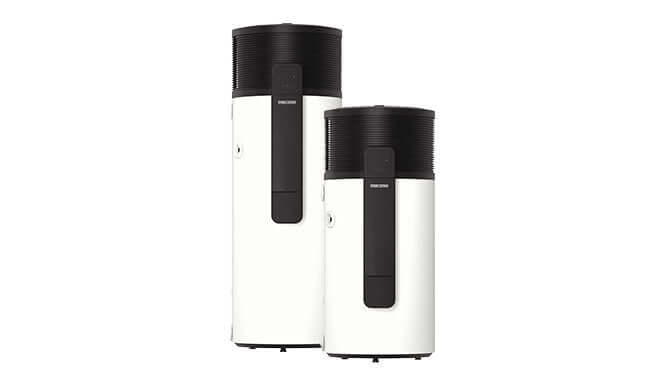
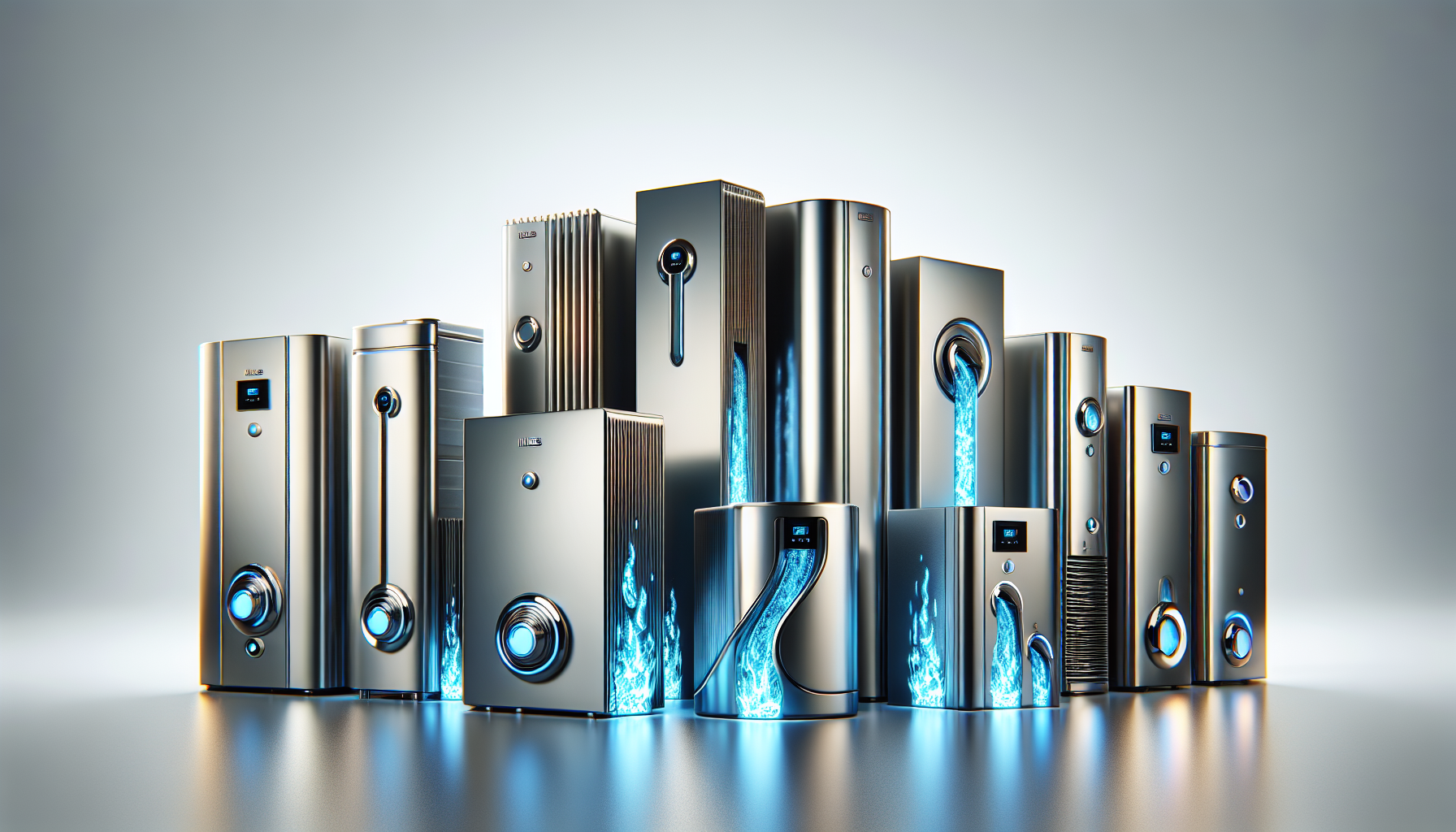
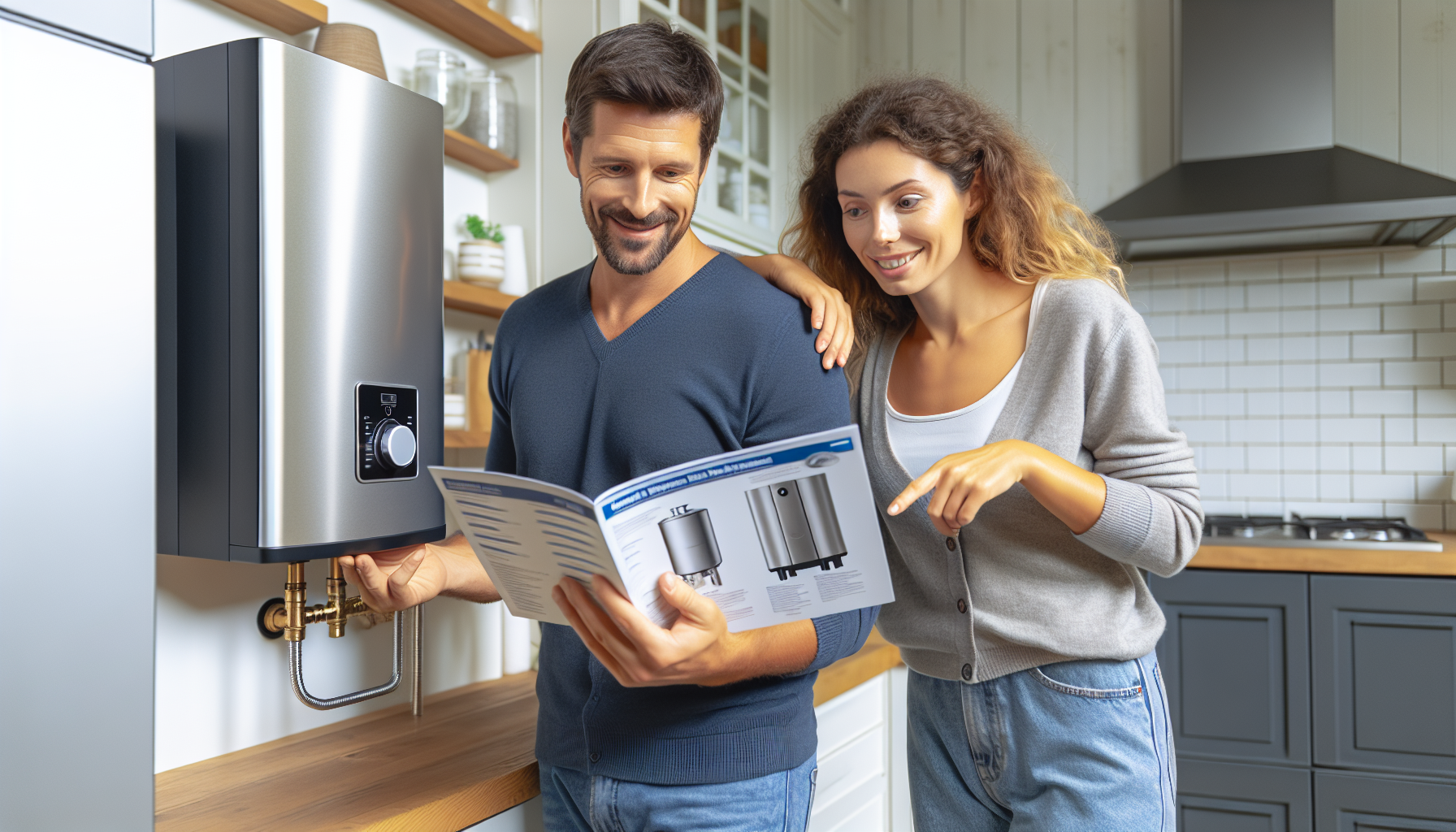
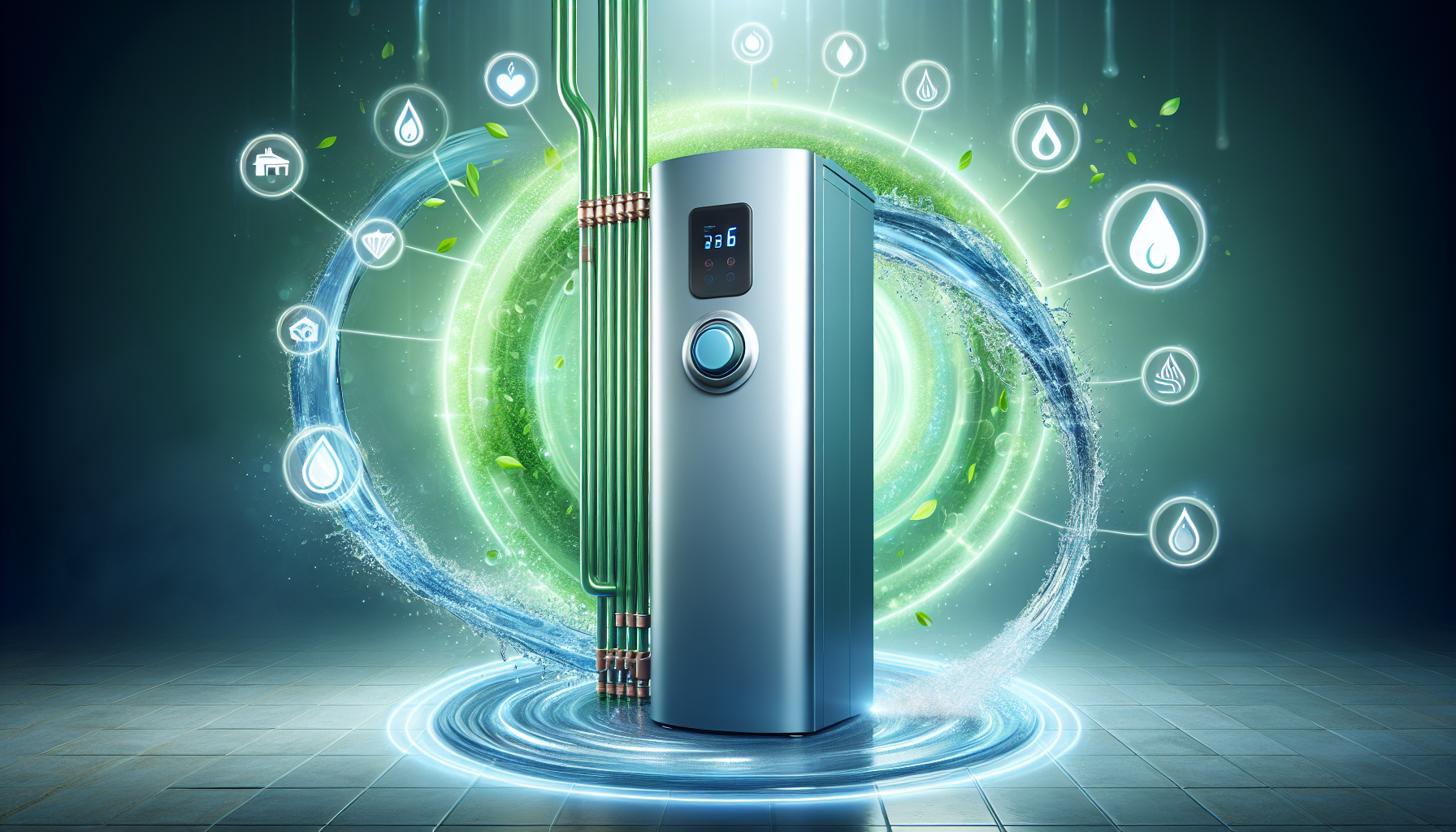
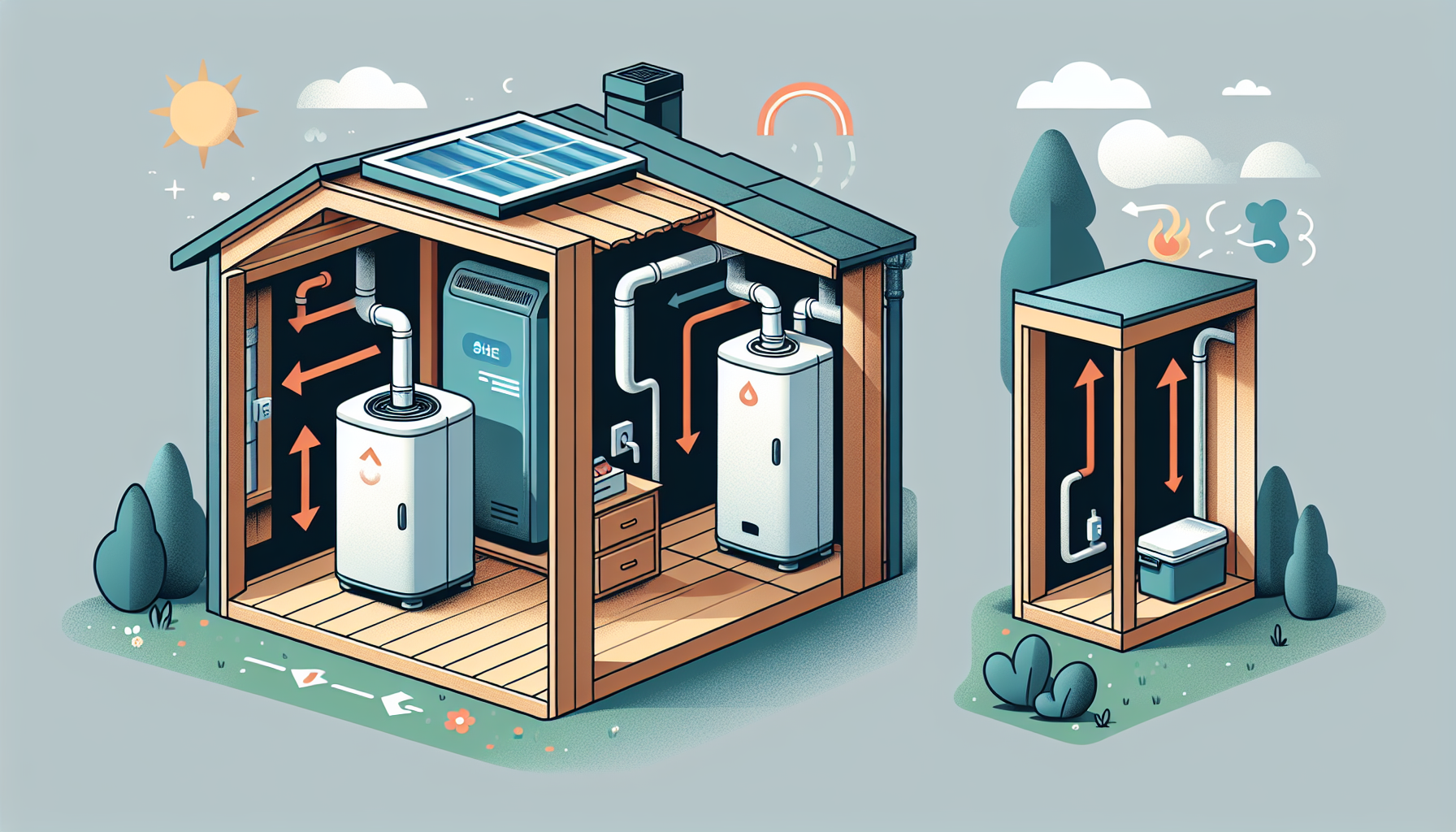
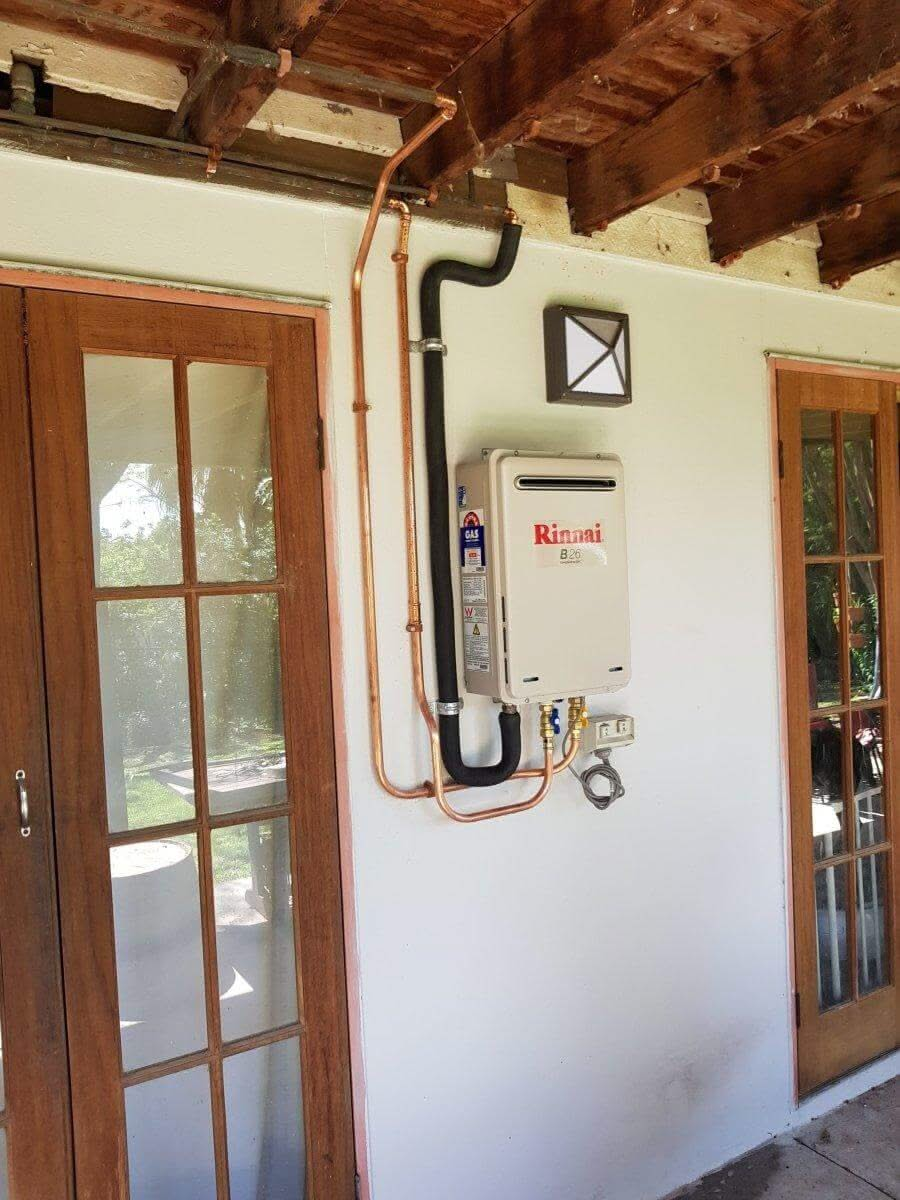
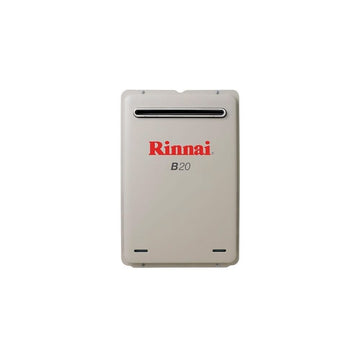
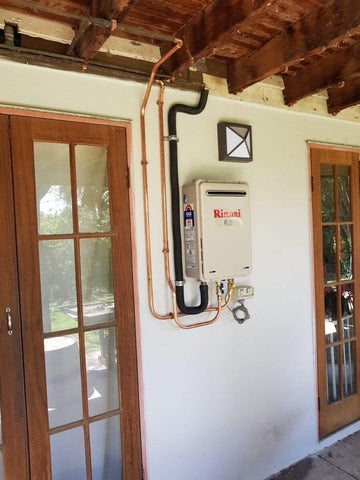
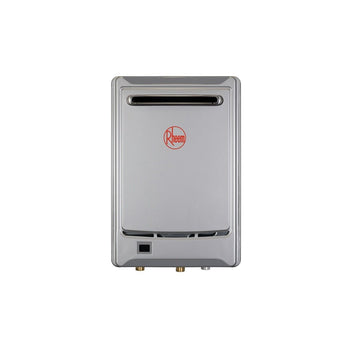
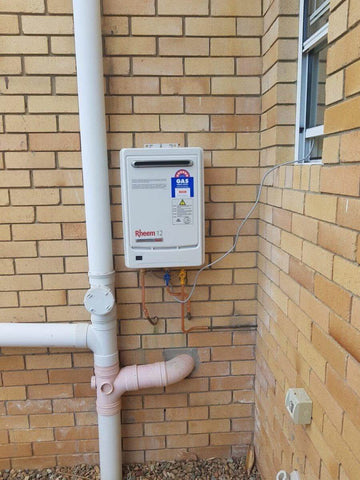
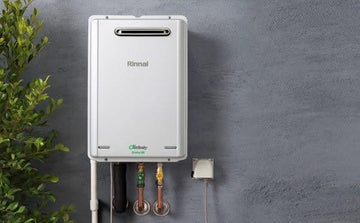
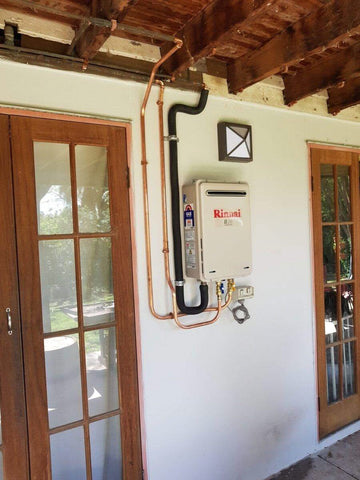
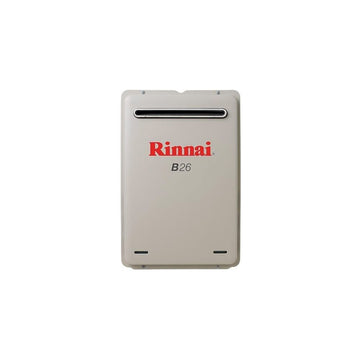
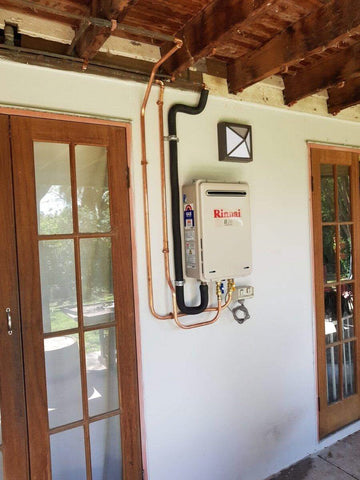
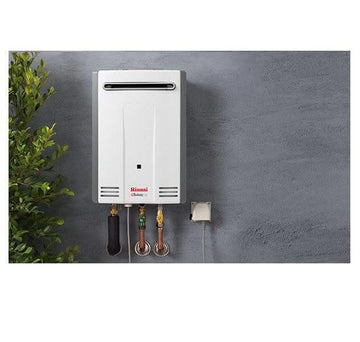
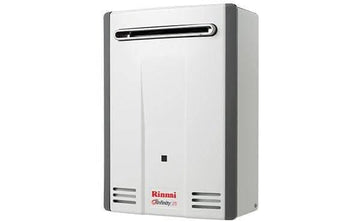
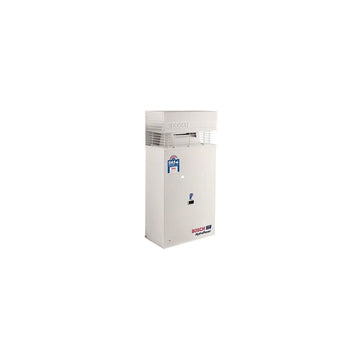
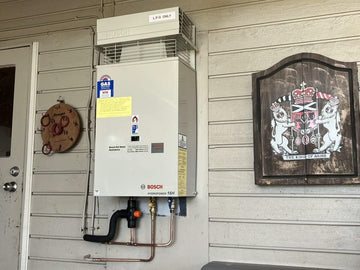
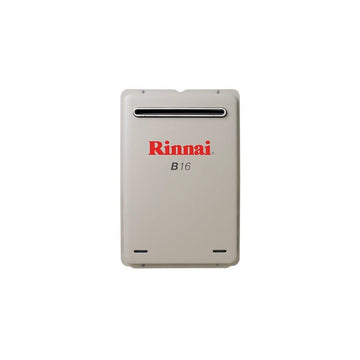
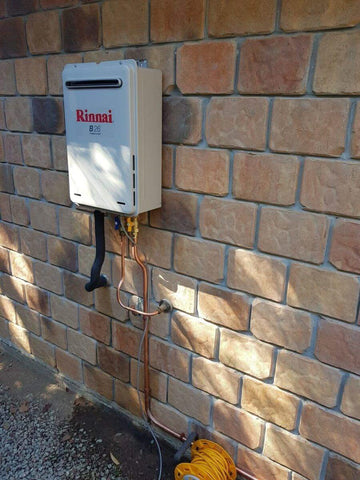
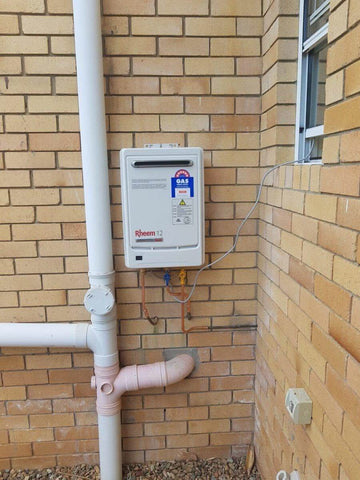
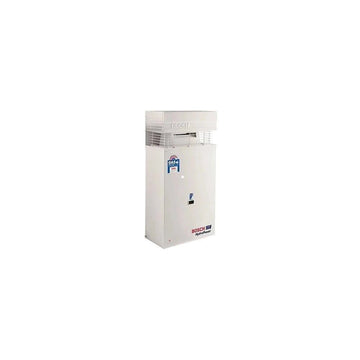
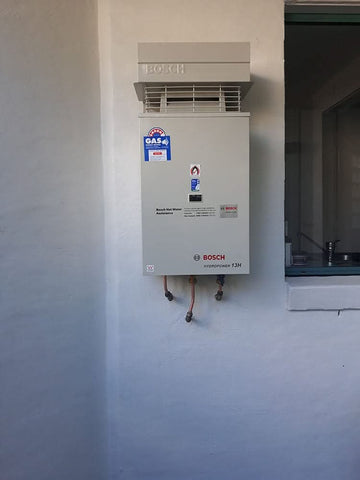
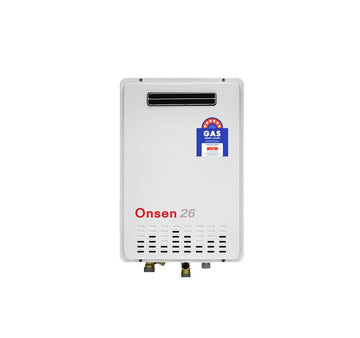
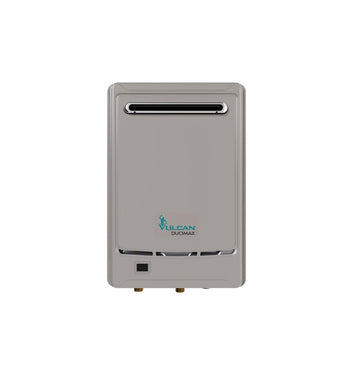
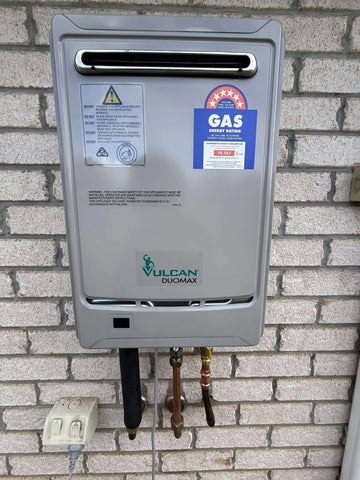
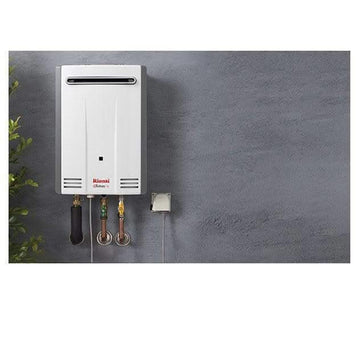
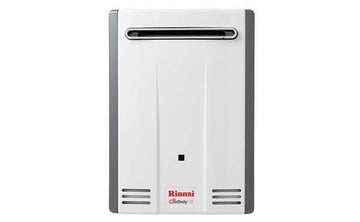
Leave a comment